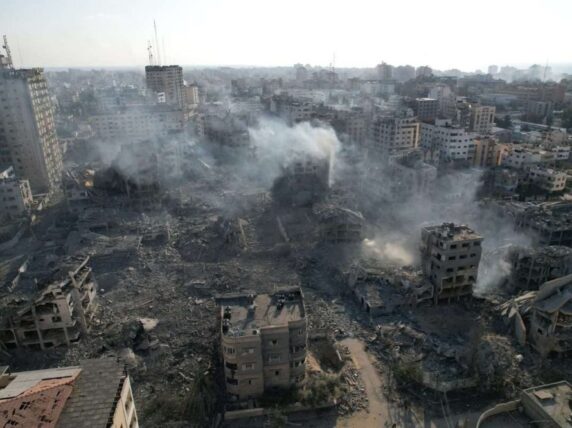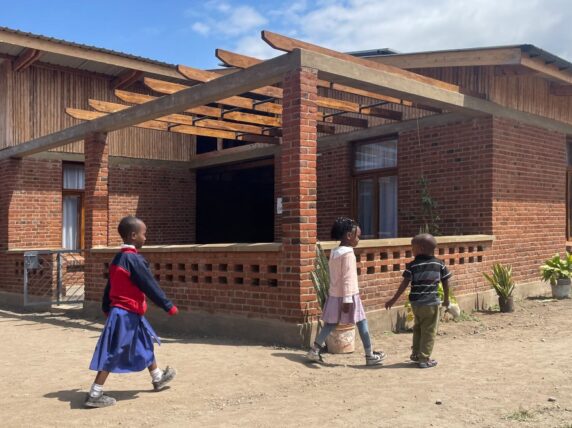Experts in our midst: why we must do more to harness the skills and knowledge of diaspora healthcare professionals
In the UK, 1 in 5 NHS staff report a non-British nationality.
Diaspora healthcare professionals – those who have trained in one healthcare system before emigrating to another – contribute significantly to health both in the UK and overseas, bringing with them a wealth of expertise and skills. But racism and discrimination impede their full contribution.
THET’s (the Tropical Health and Education Trust) 2021 policy report, Experts in Our Midst: Recognising the contribution NHS diaspora staff make to global health found that diaspora healthcare professionals are underrepresented as participants and leaders in global health. Their expertise, honed through experience in diverse health systems and cultures, is often overlooked and underutilised. Diaspora healthcare professionals have fewer opportunities than their peers to engage in and benefit from global health placements, even though they are sometimes better positioned to do so.
It is evident that colonial histories and biases contribute to the undervaluation of innovations from low-income countries. These biases are also apparent in the undervaluing of diaspora expertise, with many diaspora healthcare professionals working in the NHS experiencing racism, discrimination and limited professional advancement.
Not only is this wrong, it presents a troubling contradiction. We know that diaspora healthcare professionals face numerous inequalities but that engaging in global health and having their expertise valued could help address these inequalities. Yet, diaspora healthcare professionals remain disproportionately excluded from such opportunities, perpetuating existing disparities.
Beyond ensuring that the UK is investing enough in global health by recommitting to spending 0.7% of GNI to Official Development Assistance (ODA), we must support those individuals with the motivation, knowledge, and expertise to substantially make a difference to be able to do so. Empowering diaspora healthcare professionals is part of the solution.
Experts in our midst
THET’s Experts in Our Midst programme is a collaborative initiative that aims to dismantle the undervaluing and under recognition of diaspora expertise in the UK health system. Since 2021, the programme has worked with NHS England, NHS Wales, individual NHS trusts and boards across the UK and independent healthcare providers to harness the knowledge diaspora staff have of other health systems to develop practical solutions that improve health service delivery in the UK and overseas.
As part of this work, THET has deeply engaged with around 85 diaspora healthcare organisations (DHOs) across the UK. These organisations, which have flourished since the Covid-19 pandemic, are typically founded and run by diaspora health professionals from a particular country of origin. DHOs are valuable sources of expertise and providers of long-term institutional support to global health initiatives, particularly as many have a large membership to draw from.
In 2023, THET surveyed 685 diaspora healthcare professionals across the UK, with 74% of respondents attributing positive aspects of their practice within the NHS to their overseas experience. This, combined with multiple interviews and focus groups, supported the production of THET’s latest policy report, Voices of The Experts in Our Midst.
The report includes rich stories and perspectives from diaspora healthcare professionals like Primrose Magala, a Ugandan-born nurse who used her understanding of the Ugandan healthcare landscape and experience from her work at Moorfields Eye Hospital to address critical eye health needs in Uganda. Her initiative, Eye Health Africa, revealed critical gaps in managing eye conditions like glaucoma and retinoblastoma in Uganda, highlighting the urgent need for specialised care. The programme has trained over 50 ophthalmologists in Uganda, benefiting both the local community and NHS healthcare professionals.
Looking ahead
Significant strides have been made since the Covid-19 pandemic and the Black Lives Matter movement, with the Foreign, Commonwealth and Development Office’s 2023 International Development White Paper an example of policy commitments that acknowledge the need to ‘harness’ the expertise of diaspora healthcare professionals. However, more needs to happen to sustain this momentum – here are the three first steps we need to take:
First, we need to acknowledge the harm caused by disregarding the skills and expertise of diaspora healthcare professionals. By placing more importance on knowledge and expertise gained in high-income countries we reinforce the imperialism we strive to overcome. Racism and discrimination within the health workforce present significant obstacles to achieving universal health coverage and the Sustainable Development Goals. These challenges undermine the quality of care, hinder workforce retention and morale, stifle innovation and prolong health inequities.
Second, restoring the ODA budget to 0.7% of GNI and increasing health as a proportion of ODA presents opportunities to increase the engagement of diaspora healthcare professionals in global health activities and health systems that would benefit from knowledge exchange.
Third, it is crucial to centre the voices of diaspora health professionals and continue advocating for a decolonised and anti-racist global health architecture. We must ask who gets a seat at the table? By supporting the voices of the diaspora to lead, we can move towards a more inclusive and equitable global health system.
Diaspora healthcare professionals are health diplomats, moving between health systems with ease and confidence in their skills and knowledge. If we want to decolonise global health and promote an anti-racist and just system that achieves health equity for all, our answers lie in our engagement with diaspora healthcare professionals.
Read THET’s latest policy report: Voices of the Experts in Our Midst
Category
News & Views



